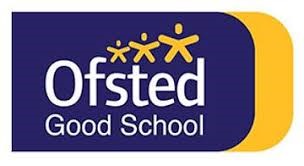Mathematics
Mathematics is important in everyday life. It is integral to all aspects of life and with this in mind we endeavour to ensure that children develop a healthy and enthusiastic attitude towards mathematics that will stay with them.
This policy outlines what we are aiming to achieve in respect of pupils’ mathematical education. It also describes our agreed approach to the planning, delivery and assessment of the mathematics’ curriculum.
The National Curriculum (2013) for mathematics describes what must be taught in each key stage. The mathematics taught and the methods used reflect both the statutory requirements and the non-statutory guidance and recommendations outlined in the following documents:
(A) The Revised Statutory Framework for the EYFS (2021)
(B) The Development Matters in the EYFS (2021)
(C) Mathematics Programmes of Study: key stages 1 and 2 National Curriculum in England (2013)
(D) NCETM- The Essence of Maths Teaching for Mastery (2016)
Aims- Teaching for Mastery
Mastery is characterised by a belief that, by working hard, all children are capable of succeeding at mathematics. On this basis, children are taught all together as a class and are not split into ‘prior attainment’ groupings.
Carefully structured teaching is planned in small steps. This provides both the necessary scaffold for all to achieve, and the necessary detail and rigour of all aspects of the maths to facilitate deep thinking. The small steps are connected and concepts are built. This leads to generalisation of the maths, and the ability to apply it to multiple contexts and solve problems.
It is expected that those children who will achieve well on a particular topic may not necessarily be the same children who achieved well on other topics. An additional daily short session of 10 to 15 minutes is provided for any pupils who do not fully grasp the lesson content, in order that they 'keep up' with the class.
Five Big Ideas
Coherence
Lessons are broken down into small connected steps that gradually unfold the concept, providing access for all children and leading to a generalisation of the concept and the ability to apply the concept to a range of contexts.
Representation and Structure
Representations used in lessons expose the mathematical structure being taught, the aim being that students can do the maths without recourse to the representation
Mathematical Thinking
If taught ideas are to be understood deeply, they must not merely be passively received but must be worked on by the student: thought about, reasoned with and discussed with others
Fluency
Quick and efficient recall of facts and procedures and the flexibility to move between different contexts and representations of mathematics
Variation
Variation is twofold. It is firstly about how our teachers represents the concept being taught, often in more than one way, to draw attention to critical aspects, and to develop deep and holistic understanding. It is also about the sequencing of the episodes, activities and exercises used within a lesson and follow up practice, paying attention to what is kept the same and what changes, to connect the mathematics and draw attention to mathematical relationships and structure.
Power Maths
What is Power Maths?
Power Maths is a resource that has been designed for UK schools based on research and extensive experience of teaching and learning around the world and here in the UK. It has been designed to support and challenge all pupils, and is built on the belief that EVERYONE can learn maths successfully.
How does this support our approach to teaching?
The philosophy behind Power Maths is that being successful in maths is not just about rote-learning procedures and methods, but is instead about problem solving, thinking and discussing. Many people feel they were taught maths in a way that was about memorising formulas and calculation methods, then having to apply them without any real understanding of what or how these methods actually work. Power Maths includes practice questions to help children develop fluent recall and develop their conceptual understanding. Power Maths uses growth mindset characters to prompt, encourage and question children. They spark curiosity, engage reasoning, secure understanding and deepen learning for all.
How will the lessons work?
Each lesson has a progression, with a central flow that draws the main learning into focus. There are different elements, informed by research into best practice in maths teaching, that bring the lessons to life:
- Discover – each lesson begins with a problem to solve, often a real-life example, sometimes a puzzle or a game. These are engaging and fun, and designed to get all children thinking.
- Share – the class shares their ideas and compares different ways to solve the problem, explaining their reasoning with hands-on resources and drawings to make their ideas clear. Children are able to develop their understanding of the concept with input from the teacher.
- Think together – the next part of the lesson is a journey through the concept, digging deeper and deeper so that each child builds on secure foundations while being challenged to apply their understanding in different ways and with increasing independence.
- Practice – now children practice individually or in small groups, rehearsing and developing their skills to build fluency, understanding of the concept and confidence.
- Reflect – finally, children are prompted to reflect on and record their learning from each session and show how they have grasped the concept explored in the lesson.
What if my child needs a confidence boost, or wants to be challenged further?
Power Maths is based on a ‘small-steps’ approach, sometimes called a mastery approach. This means that the concepts are broken down so that your child can master one idea without feeling over-whelmed. There are a range of fluency, reasoning and problem solving questions in each lesson that are designed to support the different needs and confidence levels within a class, while at the same time fostering a spirit of working and learning together. Each lesson includes a challenge question for those children who can delve deeper into a concept.
Mastering Number
This project aims to secure firm foundations in the development of good number sense for all children from Reception through to Year 1 and Year 2. The aim over time is that children will leave KS1 with fluency in calculation and a confidence and flexibility with number. Attention will be given to key knowledge and understanding needed in Reception classes, and progression through KS1 to support success in the future.
What will they learn?
- Pupils will develop and demonstrate good number sense
- Pupils will develop a secure understanding of how to build firm mathematical foundations
- Pupils will work to develop fluency in calculation
- Pupils will develop understanding and use of appropriate manipulatives to support understanding of mathematical structures
Links to SMSC
| Spiritual | Learning about other religions and their links to money (e.g. Zakat in Islam); studying the percentages they give to charity. |
| Moral |
Developing an understanding of the value of money through programs such a ‘Money Matters’. Understanding how money is spent, comparing the money in a country such as England, which is a 1st world country’, to that of a 3rd world country. |
| Social |
Developing personal qualities and using social skills: Working in pairs or groups to solve problems; Perseverance when struggling to answer questions; not being afraid to try – it’s ok to be wrong, it’s not ok not to try; taking turns when playing maths games. Understanding money and the social aspects of spending, saving, sharing etc. |
| Cultural |
Using a ‘mastery’ style of teaching, in line with Singapore Mathematics. Understanding the culture of money in different societies and countries around the world. |








